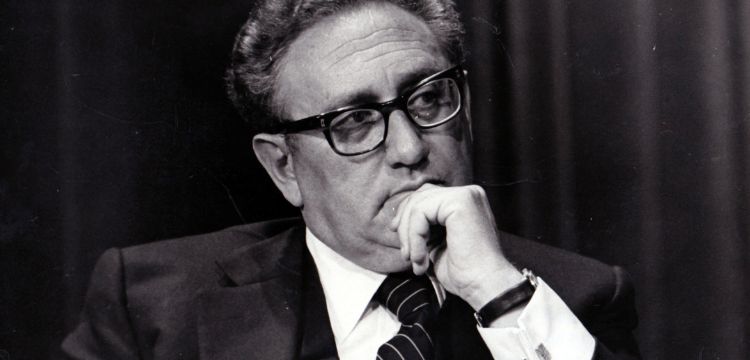[vc_row][vc_column][vc_column_text dp_text_size=”size-4″]Henry Kissinger, the former US secretary of state, known for his unwavering advocacy of American power that significantly influenced the post-World War II global landscape, passed away on Wednesday at the age of 100, according to his consulting firm.
The statement from Kissinger Associates, released late on Wednesday, announced the death of Dr. Henry Kissinger, describing him as a respected American scholar and statesman. The family plans to hold a private funeral, with a memorial service scheduled for later in New York, where Kissinger spent his formative years after his Jewish family fled Nazi Germany.
No cause of death was specified in the statement. Despite reaching the age of 100, Kissinger remained active, even traveling to China in July for a meeting with President Xi Jinping.
One of Kissinger’s enduring legacies is his role in normalizing relations with China. In an effort to reshape the Cold War dynamics against the Soviet Union, Kissinger initiated secret communications with Beijing, leading to President Richard Nixon’s historic visit in 1972 and the subsequent establishment of diplomatic ties with China. This move catapulted China into becoming the world’s second-largest economy and a formidable competitor to the United States.
Also Read: NASA To Prepare Indian Astronaut For ISS Mission
After Nixon’s resignation due to the Watergate scandal, Kissinger continued to serve under President Gerald Ford, holding both the positions of secretary of state and national security advisor simultaneously, an unprecedented arrangement.
Despite receiving the Nobel Peace Prize for his negotiations to end the Vietnam War, Kissinger remains a controversial figure due to his realpolitik approach—advocating that nations pursue their interests through power. Declassified documents revealed his involvement in the overthrow of Chile’s elected president Salvador Allende and support for General Augusto Pinochet’s coup in 1973.
Kissinger’s legacy includes support for Indonesia in its annexation of East Timor, turning a blind eye to mass atrocities in Bangladesh, and authorizing secret bombing campaigns in Laos and Cambodia during the Vietnam War.
While his realpolitik philosophy stirred global criticism, Kissinger remained respected in the United States, receiving tributes from politicians across party lines. His diplomatic achievements during the Yom Kippur War in 1973, especially in mediating between Israel and Arab states, earned him widespread acclaim.
Kissinger, with his distinctive thick glasses and deep monotone voice, became an iconic figure in American diplomacy, recognized for his influence and unconventional status as a sex symbol. He is survived by his wife of nearly 50 years, Nancy, two children from a previous marriage, and five grandchildren, according to his consulting firm.[/vc_column_text][/vc_column][/vc_row]











